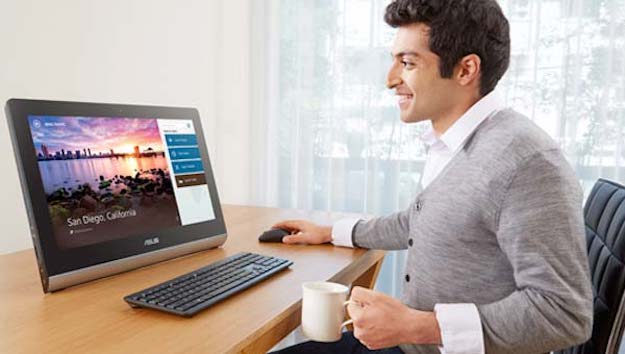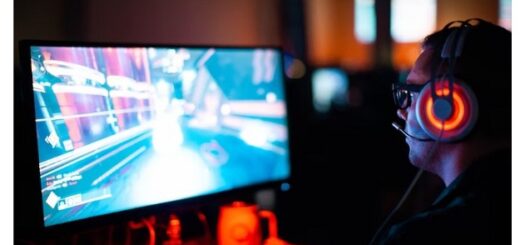The computer has now become one of the most critical equipment. PC performance is indispensable to seamless operations. However, as with any machine, the performance of your computer can decrease over time for several reasons, such as software bloat, the wear and tear of hardware, and the accumulation of junk files. Proper maintenance is critical in ensuring that your system performs consistently at a high level. Routine PC care can help boost its performance, prevent slowdowns, and prolong its lifespan. Here are some essential maintenance tips to help improve your computer’s performance and keep it running optimally for years.

Understanding the Importance of Regular PC Maintenance
Just like other machines, computers need regular care to work well. As you use your computer for various tasks over time, your system builds up unnecessary files, redundant applications, and malicious software. A slow PC can make these issues come one after another, leading to a positive cycle of frustration. Overheating and hardware issues can also impact performance, causing your machine to crash unexpectedly or, in the worst case, permanently break.
This is why regular maintenance is essential for computers. It solves these common issues so your computer continues in a good state. Maintaining your PC is critical to improving system speed, recovering disk space, and preventing security breaches. Routine maintenance solves minor performance issues and avoids more costly, serious problems. Here’s a practical list of maintenance tips to improve the performance of your PC cleaner.
Cleaning Up Your PC’s Software
One of the most frequent causes of computer slowdown is the buildup of software-related problems. After a while, your system tends to get cluttered with temporary files, unused applications, and system junk, slowing things down. Cleaning up your PC’s software regularly can free up space and restore system efficiency.
Uninstall Unused Applications
Using your computer makes it easy to have apps you don’t want anymore. Removing such apps can free up storage space and improve the system by preventing them from running in the background. Regularly checking the installed programs on your PC and removing the unnecessary ones can significantly enhance PC performance. You can do this manually via your system’s settings or by using third-party software that is built to assist you in pinpointing unused programs and getting rid of them.
Perform Disk Cleanup
As you use your PC over the years, temporary files, caches, and log files build up. If not deleted, these files occupy space essential for storage and slow down your system’s functioning. Disk Cleanup is an integrated tool on Windows that helps you quickly eliminate unneeded files. Running this tool every few weeks frees up space and makes your system run faster. For deeper cleaning, you can also look for third-party disk-cleanup utilities to find and remove hidden files that the default tools cannot catch.
Update Software Regularly
Updating your operating system and software to their latest versions is essential for Windows computer security and overall performance. Software developers routinely issue updates to correct bugs, improve functionality, and shore up security holes. Performing updates creates a process for ensuring that you have the latest, most used versions of the different software and systems running on your laptop. Turn on automatic updates wherever possible to minimize the chance of skipping essential updates.
Ensuring Your Computer is Free from Malware
Most people are aware of the threat that malware and viruses pose to their data, but they can also cripple the performance of your computer as well. Malware may slow operations, use up system resources, and even cause your computer to crash. Scanning regularly for viruses and malware on your computer is an integral maintenance step to keep your system fast and secure.
Install and Update Antivirus Software
The first line of defense against malware is antivirus software. It also scans your system for threats and protects against viruses, spyware, and ransomware that itself may be damaging. To secure your system against the latest threats, you’ll want to download a trusted antivirus solution and ensure it is always up-to-date. Many antivirus solutions include real-time protection, which recognizes malicious activity as it occurs. Set it up to perform periodic scans and run it in the background to be effective.
Perform Regular Malware Scans
Along with viruses, your computer is also open to other kinds of malware, like adware and spyware, which can log your activity and steal sensitive information. Regular malware scanning allows your system to be free from such attacks. Not only do many antivirus programs include internal malware scanners, but dedicated anti-malware tools exist for additional protection.
Managing System Resources for Better Performance
Another performance aspect is managing the allotment available on your PC. Resources like extreme CPU, RAM, and hard drive usage can significantly impact your system performance. If handled correctly, these resources will keep your computer running smoothly.
Monitor Running Processes and Applications
Your PC might run many background applications and processes using CPU and memory. However, some of these processes are necessary, while others are extra and can be shut down to free up resources. Built-in tools like task manager on Windows or activity monitor on macOS let you monitor your PC’s performance. These tools display which applications use the most resources and allow you to close unnecessary ones to enhance performance. If certain apps regularly provoke resource usage, consider updating or reinstalling them to ensure they run well.
Upgrade Your RAM
If your resource management efforts have failed to make your computer run faster, upgrading its RAM can make a huge difference. Your computer uses random access memory (RAM) to hold temporary data for fast retrieval. If you run several applications or do resource-consuming tasks, it may run out of RAM, which makes it slower. More RAM means your computer can do more at once, which helps everything run more smoothly, particularly when multitasking or dealing with large files.
Keeping Your Hardware in Top Condition
Like your computer’s software, your computer’s hardware plays a huge role in maintaining its performance. Physical things like the hard drive, cooling system, and keyboard can get dirty, damaged, or outdated. These parts work well and require regular hardware maintenance.
Keep Your Computer Clean
Dust may accumulate on your PC, and dust and dirt will build up on it, so it’s essential to remove dust from your PC for performance, especially around the cooling fans and vents. Overheating is one of the most common causes of poor performance, where your system must throttle how fast it runs to avoid damage. Also, regularly cleaning the inside of your computer with compressed air can go a long way in preventing dust buildup, which will help keep the system cool. Before cleaning, please switch off the computer and unplug it to avoid damage to any internal components.
Check the Health of Your Hard Drive
Your hard drive holds all your files, and if it starts malfunctioning, it can severely affect your system performance. Regular health checks of your hard drive help avoid data loss and enhance the efficiency of your PC cleaner. Use built-in tools to scan your drive for errors. Check Disk on Windows is a built-in tool to scan and fix drive errors. If you’re noticing the signs of failure, such as slow read/write speeds or unusual noises, it might be time to replace the drive before it forces you to deal with far worse issues.
Update Drivers for Better Compatibility
Drivers are software parts that enable your computer’s operating system to interact with hardware components. Drivers are outdated or missing and take the software out of the compatibility loop, impacting performance. Updates to your drivers regularly ensure your system is optimally configured to utilize your hardware’s capabilities. Most PC manufacturers have software to keep drivers up to date automatically, but you can also update them manually by checking the device manager.
Conclusion
Enhancing PC performance is a continuous task that demands consistent upkeep and care of the software and hardware. Regular computer maintenance, whether cleaning junk files, updating applications, scanning for potential malware, or managing system resources, ensures you always have a fast, secure, and efficient machine. In addition to software maintenance, physical clean-up of the hardware and running diagnostic checks will ensure a more prolonged survival for your system. With regular maintenance, you’ll get the most mileage from your computer and continue getting the best performance for years. By implementing these simple tips, you can have a smoother, faster, and more effective computing life!




